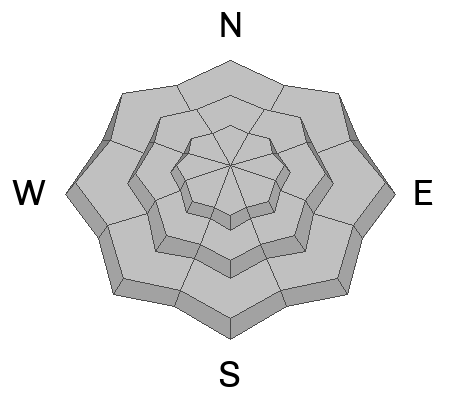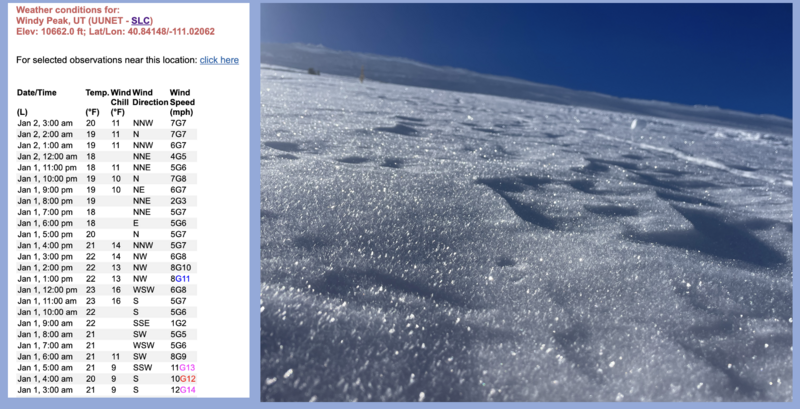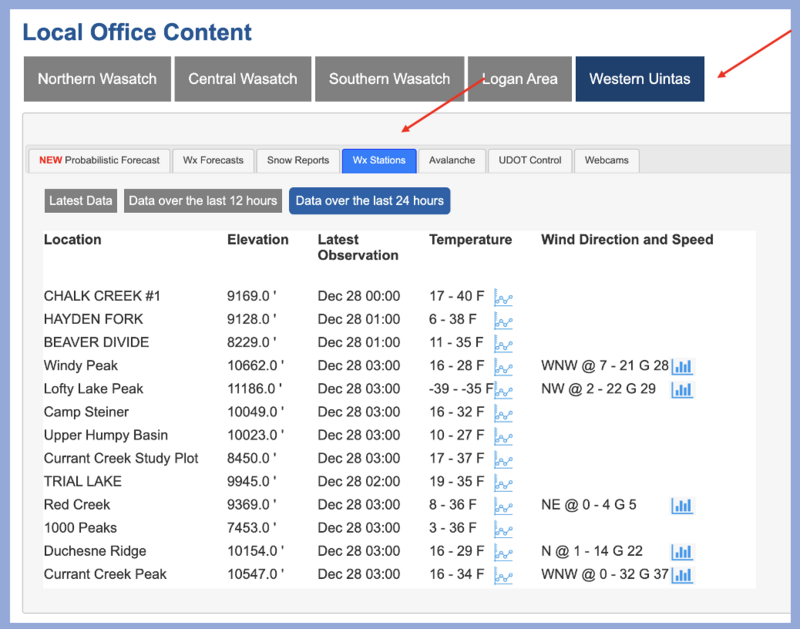Forecast for the Uintas Area Mountains

Issued by Craig Gordon on
Tuesday morning, January 2, 2024
Tuesday morning, January 2, 2024
The second day of the New Year offers generally LOW avalanche danger with human triggered avalanches unlikely for the eastern front. For the moment, slamming into a buried treasure like a rock or stump poses a greater hazard.
HEADS UP-
The good news is... the weather pattern appears to change later this week and storminess returns, but that means avalanche conditions change as well. We've got yer back and will keep you updated as the picture becomes more clear.

Low
Moderate
Considerable
High
Extreme
Learn how to read the forecast here









